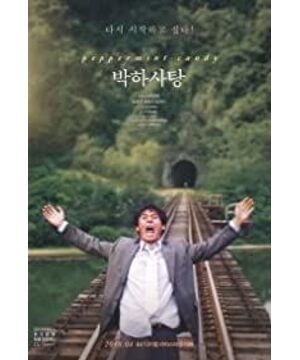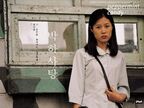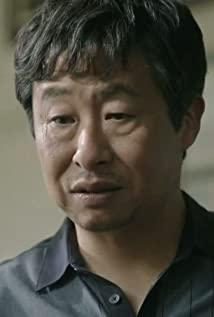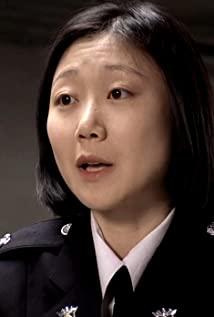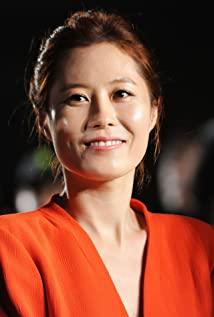The film itself has a different influence and significance to me. The first time I watched it was in a school classroom in 2014. The teacher showed a 30-minute movie clip. I felt dull and boring at first, but after 10 minutes it was completely Into the play. Go back to download it immediately, watch the full movie late at night, tears can't stop.
Getting to know Li Cangdong started with "Miyang", which I watched with my friends when I was in my second year of university. A group of young people who had nothing to do, skip class and gathered at home, playing various classic movies on the projector, and after watching the movie. We will always have a debate, this is the best college memory.
This time I was very lucky. After 4 years, I could watch "Mints" in the cinema again. After the screening, Li Cangdong came to the stage for post-screening talks. In addition to the sneak shots, I made some real-time records. The interview content is a lot of facts. I hope to help you interpret this film from the director's point of view. I share it here~
1. About the theme
Li Cangdong’s explanation of mints, in 1999, many people imagined what the future would be like. He wanted to make a film to tell the time and communicate with the audience. He believed that the future is composed of the present and the present is composed of the past. So he made a flashback movie.
2. Moderator: Why use the flashback structure?
Li Cangdong: What is the meaning of time? Time is a result, and there is a reason before the result occurs. He thinks that using flashbacks will make everyone understand, the reason will be clearer, and it will make everyone think. If he didn't do this in the past, what new results would he have?
3. How did the inspiration for "Mints" come from?
Li Cangdong: He was influenced by a book called "Reminiscence of the Years Like Water". There are cakes in the book. It will be influenced by a trivial object in life.
4. Host: Some political events are mentioned in the movie, why are they added to the movie?
Lee Cangdong: This is a 1999 work. The span of the movie is 20 years. The end of the movie is 1979. It is an important moment for Korean movies. After the death of the military dictator Park Jeong-hee, who ruled South Korea, it also ended a long period of time. A dictatorship of more than two decades. When people at the time knew the news, they believed that the country had new hope and ushered in a new future. He felt the need to portray this period of history. In 1979, the male protagonist thought was very simple, just like the general public. After developing all the way to 1999, many turbulent events occurred in Middle Korea, such as the "student movement" in 1987, the economic take-off of Middle Korea, and the financial turmoil in 1997. Many turbulent events have occurred in Korean society. The director hopes to look at the events that have happened over the years through the perspective of a subtle and ordinary character.
As for what the director himself was doing back then? For example, when the "Gwangju Movement" happened, the director was a college student. When he was in school, he found that the school was closed. He went to a friend’s house for the night. Everyone was very upset and nervous. On the second day, everyone heard a lot about the "Gwangju Incident". He himself was greatly affected, so he wanted to be in the movie. Express the matter.
5. Host: "BURNING" was released recently. The director often mentioned anger, which is the theme expressed in the movie. In fact, I think the theme of "anger" runs through many of the directors' plays. Regarding a torrent of individuals and history, or, in other words, the conflicts between a very large social system, various NEOGITATIONs. I think the amazing thing about the director is that your movies are always calm and gentle, and always move the audience at this time. For example, there are many examples in "Mints" where the heroine gave the hero a camera, and when the hero sent the hero away, the hero left and limped away. On the surface, it looks like a very simple separation scene, but that camera, or why is the male protagonist's foot limping? It turned out that the male protagonist suffered a gunshot wound to his foot when the military government was pressing down on students. A lot of that means. I want to ask, how does the anger that the director wants to express and the calmness of the picture reconcile?
Li Cangdong: The director always wants to know how people look at their movies? For example, Hitchcock shoots the most exciting and interesting life of a person. Many Hollywood movies are shot in the most dramatic way. He didn't think so. He thinks that many trivial and subtle things are very interesting for a character and life. These things will reflect the anger, sadness and other emotions of a character. He feels that through a subtle movement to express the character's inner feelings, the director believes that the audience can feel it.
6. Moderator: Trains and rails are used in every chapter. Why not talk about the significance of trains in the movie?
Li Cangdong: Every time the actor experiences a big impact in his life, he will be by the train, so the train has a strong symbolic meaning in the movie. When the director thinks about it, because the movie itself is a period of time, how does he use the picture to explain the time? When something happened and time passed, he felt that the train was a good and suitable vehicle. The train is a running time. In fact, everyone plays the life of the protagonist in a running time. He thinks that the train itself is related to the movie. For example, everyone knows that the first movie in the world is the Lumiere brothers' "Train Into the Station", so the train and the movie are closely related.
Moderator: Just now, the director mentioned that when conceiving this story, telling the protagonist to go back to his own life and read it again. Will there be another way? I think trains have this meaning, just like rails and tracks.
Li Cangdong: This is about choices. Everyone's different choices will bring about different changes in life. For example, when the male protagonist accidentally killed the female student at the end, it was not the male lead's subjective choice. He didn't want to kill the female student, but there was no way. It was really an accident. But why does this happen? Why is there such a mistake? In fact, many choices are involved behind the scenes. What he wants to say is that through fantasizing this action, some seemingly small scenes will bring about a great change in life. So the director very much hopes, let young audiences, in fact, how can you choose in your life?
7. Host: The director used to be a writer, so when he conceived a lot of actions and plots, there were always many echoes. It's better to talk about "Oasis". The director's approach is mainly realistic. The heroine reflects the tree shadow of the painting. She also likes light. She sees many beautiful illusions. How did the director think of this contrast? This is the only surreal moment in the director's movie.
Li Cangdong: The oasis is in the desert, where life can live in harmony. His illusions come from different reasons, because these people have been bullied in their lives. His illusions are not generally seen in them. He feels that these It is impossible for people to reach the content of fantasy. So the meaning is different. Although it is a fantasy, it is actually something we can see in our daily life.
8. Moderator: How does the director portray female characters?
Li Cangdong: I think there is no difference between male and female protagonists. If the director does not buy a male director, he only understands what men think. The creator has the responsibility to know what men and women think. He mainly focuses on a person's inner world, regardless of gender. He thinks that female characters are a bit more interesting than male characters. Women are more sensitive to suffering, and women are more sensitive to interpersonal disturbances. The director thinks it is more interesting to shoot female characters.
9. Audience Q&A Session:
My question: Why did the director emphasize the difference of the characters in "BURNING", which is an element not in the original work of Haruki Murakami?
Li Cangdong: The most concerned point in Haruki Murakami's novel is, should I burn the warehouse? The director felt that the novel did not emphasize social differences, but the director felt that the world is the biggest mystery. How do the events we experienced constitute this puzzle? The problems we face are the problems we saw in the movie. These are not just what happened in Korea. He wanted to talk about the impact of events in modern society on young people. The director doesn't say too much, he is afraid that many people have not watched "BURNING".
View more about Peppermint Candy reviews


